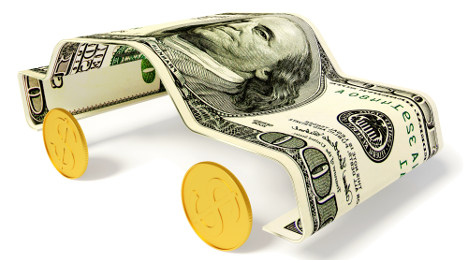Seasonal factors trigger March auto ABS improvements

By subscribing, you agree to receive communications from Auto Remarketing and our partners in accordance with our Privacy Policy. We may share your information with select partners and sponsors who may contact you about their products and services. You may unsubscribe at any time.
NEW YORK –
S&P Global Ratings confirmed that typical seasonal impacts helped collateral performance in the U.S. prime and subprime auto loan asset-backed securities (ABS) sectors to improve in March relative to February.
Analysts indicated in their latest report that losses, delinquencies and recoveries performed better month-over-month due to seasonal trends, including consumers using tax refunds to catch up on their payment obligations.
“Tax refunds also created demand for used vehicles, thereby bolstering recovery rates on a month-over-month basis,” S&P Global Ratings said.
“On a year-over-year basis, the prime sector continued to post weaker loss, delinquency and recovery results,” the firm continued. “Meanwhile, the subprime segment demonstrated year-over-year stability in losses, but recovery rates continued to worsen and delinquencies rose slightly."
According to a report published by S&P Global Ratings, prime net losses decreased month-over-month to 0.63 percent in March from 0.73 percent in February.
However the reading increased year-over-year from 0.40 percent.
Subscribe to Auto Remarketing to stay informed and stay ahead.
By subscribing, you agree to receive communications from Auto Remarketing and our partners in accordance with our Privacy Policy. We may share your information with select partners and sponsors who may contact you about their products and services. You may unsubscribe at any time.
“Prime recoveries are also declining on a year-over-year basis and this is affecting some of the captive finance pools,” analysts said. “Further, some prime issuers have loosened their credit standards for their 2015 and much of their 2016 originations.”
S&P Global Ratings goes on in the report to mention the subprime net loss rate decreased to 6.20 percent in March from 7.51 percent in February. The reading also was nearly stable year-over-year since the level in March 2016 came in at 6.16 percent.
As a supplement to its subprime index, S&P Global Ratings reiterated that it created the modified subprime index, which excludes certain high-loss deep subprime issuers. On a month-over-month basis, analysts noticed the modified subprime losses decreased to 5.33 percent in March from 6.08 percent in February.
But losses in the modified subprime index increased from 4.99 percent in March of last year.
S&P Global Ratings closed its latest ABS discussion by reviewing how loan-to loan-to-value ratios (LTV) are impacting the latest trends.
In reviewing collateral trends for transactions issued in the first quarter of this year, S&P Global Ratings said it observed that the weighted average loan-to-value (LTV) ratio for subprime transactions declined to 110.41 percent from 114.37 percent a year earlier, with six issuers reporting a year-over-year reduction in their weighted average LTV of at least 100 basis points.
“We believe these companies have lowered their LTVs in response to higher losses and the outlook for continued weakness in recovery rates,” analysts said.


